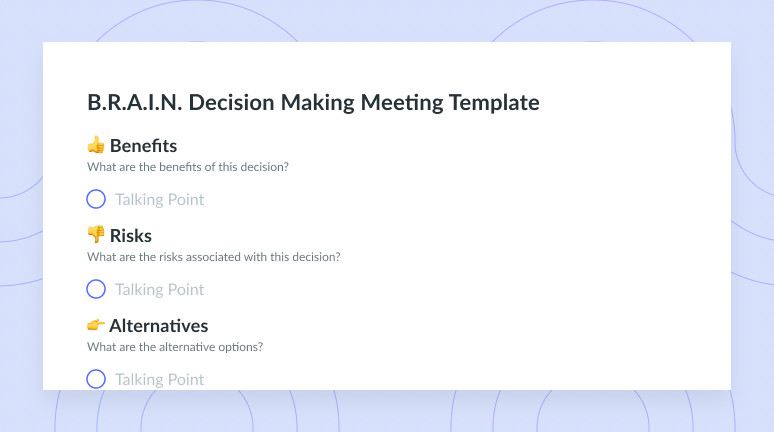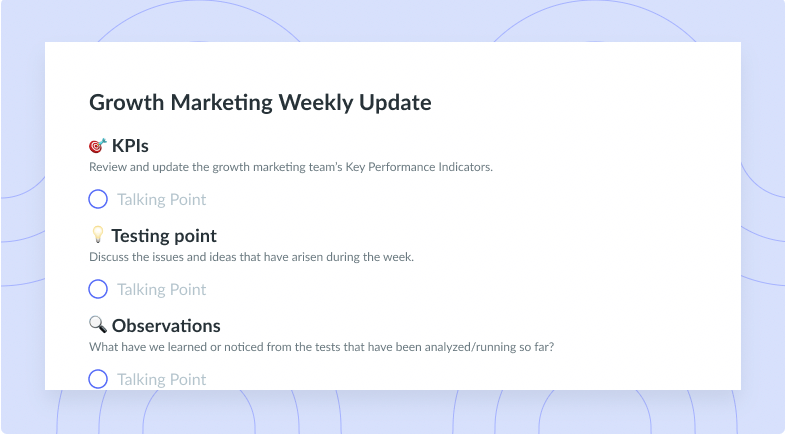Identifying the Stages and Causes of Burnout
Do you know what the stages of burnout look like? Learn about the five stages and the symptoms that could mean you are experiencing burnout.
Everyone has bad days at work.
Not everyone only has bad days at work, leading them to be mentally and physically exhausted. And not everyone wakes up on Monday morning already longing for Friday afternoon.
This prolonged feeling of exhaustion and fatigue could mean you’re experiencing burnout from your job, and unfortunately, it’s more common than you may think. If you’re unsure if you identify with the symptoms or feelings of being burned out, Fellow is here to help break down the specifics for you.
- Stress vs. burnout
- Possible causes of job burnout
- The 5 stages of burnout
- Recognizing the symptoms of burnout
- 5 ways to prevent burnout
Stress vs. burnout
Sometimes people confuse feeling stressed with feeling burned out, but the two are different. On one hand, stress is when your to-do list is overflowing, you have too much on your plate, and you spend too many long hours working. Essentially, you’d feel stress when work starts to feel out of control, but stress is likely to lessen or decrease as time goes by.
On the other hand, burnout is when you’re feeling completely unmotivated, your energy is depleted, and you’ve lost all interest in work and simply don’t care. Whereas stress may decrease over time, burnout will only increase or heighten as time passes.

Run efficient meetings, come to a decision, and get back to work
Level up your meeting habits to boost engagement and productivity with a collaborative meeting agenda. Try a tool like Fellow!
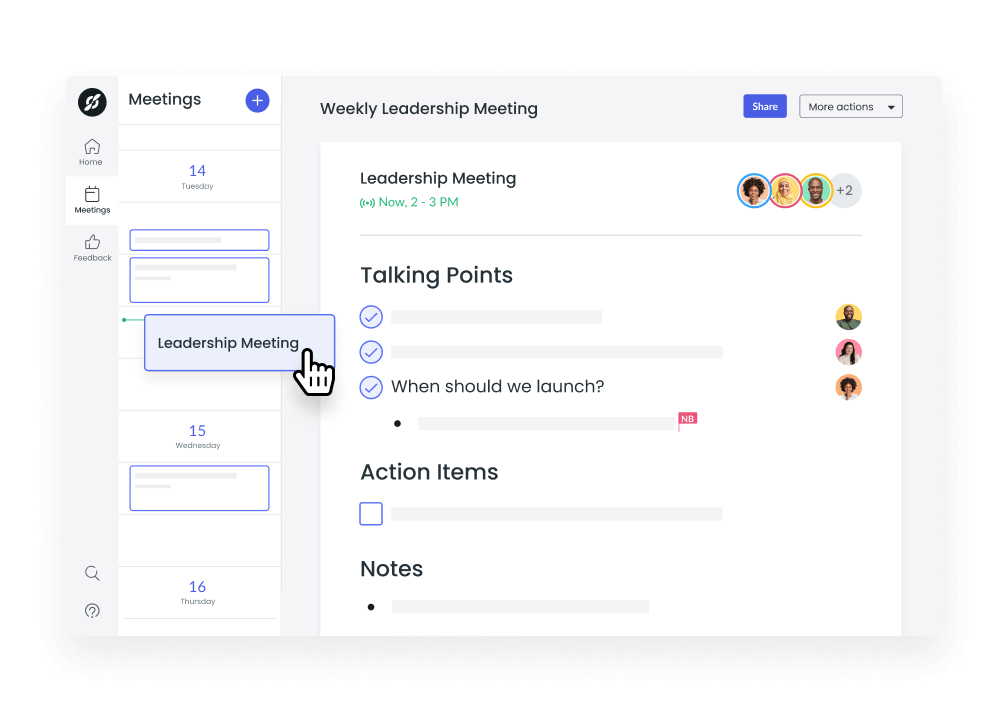
Possible causes of job burnout
There are some actual causes of job burnout that you can watch out for and try to actively avoid, including:
- Poor work-life balance: If someone is spending most of their time at work or is constantly working on tasks after working hours, they no longer have the time or energy to spend with family or friends or enjoy hobbies and activities that bring them joy. This poor work-life balance can ultimately lead to being burned out.
- Lack of control: When an individual is at their workplace and they don’t have control over specific components, like their assignments, the hours they work, their workload or to-do list, or the resources they need to be successful in their role, this lack of control could lead to burnout. Having flexibility in the workplace is key to avoiding burning out at work.
- Non-psychologically safe environment: Psychological safety refers to when someone feels safe to communicate honestly and behavior genuinely, without fear or risk that their actions or words will be used against them. An employee working in a non-psychologically safe environment where someone is always looking over their shoulder and making them feel like they can’t be their authentic self is likely to burnout.
- Unclear or unrealistic expectations: If your supervisor, manager, or coworkers are unclear of what they expect from you, this can cause you to feel confused or uncomfortable at work.
The 5 stages of burnout
Thankfully, burnout doesn’t happen overnight. It’s a gradual feeling one may develop over time. Someone experiencing burnout will typically make their way through the following five stages. The speed at which someone goes from stage one all the way to stage five will depend on a variety of factors.
1Honeymoon
First up is the honeymoon phase. Just like in marriage, this stage is rooted in optimism and energy. When you start a new task or when it’s day one at a new job, you likely feel productive, energized, and excited to roll up your sleeves and get started. You’re feeling satisfied with your role and the work ahead of you.
Some symptoms here include:
- Job satisfaction
- Commitment to the tasks you have in front of you
- Sustained energy levels
- A burst of creativity
- Optimistic feelings about the future
2Physical and mental stress
Eventually, the honeymoon phase will come to a close, and you’ll start to experience feelings of stress. While not every moment of your job feels stressful, the moments where you feel stressed outweigh those when you feel at ease. Here, you’ll want to note physical and mental warning signs, like losing focus easily, feeling unproductive, or having difficulty sleeping.
Other symptoms to watch out for include:
- Irritability
- Reduced or a lack of sleep
- Fatigue
- Loss of focus
- Lack of desire to make impactful decisions
3Chronic stress
This stage is when stress becomes even more persistent, affecting your mental and physical health. At work, an individual within this stage may struggle to complete their work on time or procrastinate tasks they were once excited about. Outside work, a person may avoid discussing work with friends and family members and may also begin to lash out at others.
Symptoms of this stage include:
- Consistent missed deadlines
- Angry behavior
- Long bouts of exhaustion or tiredness
- Physical illness
- Feelings of pressure, panic, or resentment
- Increased consumption of alcohol, drugs, or caffeine
4Burnout
Stage four of burnout is … burnout itself. It’s no longer possible to avoid any warning signs, and at this stage, an individual finds it even more challenging to carry on in their usual manner. A person has officially reached their limit, and problems at work begin to consume them, almost to the point of obsession. A person may start to feel numb and have increased feelings of self-doubt.
Other symptoms of burnout officially becoming a reality are:
- Chronic headaches
- Stomach issues
- A feeling of emptiness
- Neglect of personal needs
- Social isolation
5Burnout becomes habitual
The last stage of burnout is when these feelings start to feel normal and become a part of your everyday life. This is when burnout can lead to anxiety and depression and become a chronic problem. Additionally, when someone reaches this stage, their job can be put in jeopardy, as well as their relationships with others.
Symptoms you’ve reached this final stage are:
- Severe depression
- Chronic sadness
- Mental and physical fatigue
Recognizing the symptoms of burnout
If you think you may be experiencing signs of burnout, but aren’t quite sure, consider these physical and emotional symptoms as the warning signs for which you should watch out.
Physical symptoms
Some common physical symptoms of burnout include:
- Feeling exhausted, fatigued, or tired
- Having difficulty getting a full night’s sleep
- Experiencing a change in appetite or eating habits
- Having an increase in headaches or muscle pain
- Having high blood pressure
- Noticing a lower immune system, causing you to fall ill more frequently
Emotional symptoms
Some common emotional symptoms of burnout include:
- Having a more pronounced sense of failure or an increased feeling of self-doubt
- Experiencing a loss of motivation both towards work responsibilities and things outside of work, like hobbies and interests
- Feeling helpless, defeated, or trapped
- Having a negative or cynical outlook
- Feeling as if you’re completely alone or isolated from others
5 ways to prevent burnout
It is possible to prevent burnout before it happens to you, so if you’re concerned you may be toeing the line and approaching being burned out, here are five things you can do to ensure it doesn’t happen.
- Have a good sleep schedule
- Be honest about your feelings
- Learn how to manage your stress
- Maintain a balanced diet
- Exercise regularly
1Have a good sleep schedule
If you can’t remember the last time you got a full eight hours of sleep, it’s time to reevaluate your sleep schedule. A good sleep schedule can help you feel energized and start each day off on the right foot.
Feeling exhausted leads to physical, emotional, and cognitive fatigue, which can make it challenging to do your job or feel optimistic about what you’re doing. To ensure your battery is well charged and you feel well rested, do everything you can to get on a “regular” sleep schedule to achieve eight hours.
2Be honest about your feelings
If you think you’re approaching burnout, speak up and be honest about how you’re feeling. The next time you and your manager have a one-on-one meeting, bring it up with them. There’s no shame in admitting how you feel and asking for help. Your manager can hopefully help you reevaluate how things are being handled at work and give you the tools needed to avoid burnout at all costs.
3Learn how to manage your stress
Stress happens no matter what industry you work in or the role you have. So no matter if you’re working in the office or remotely, know the best ways to handle stress that work for you. This may look like going on a walk on your lunch break, taking a long weekend, or knowing when it’s time to call it quits for the day. Everyone handles stress differently, so find out what works for you and then put the strategy in motion.
If you don’t learn how to manage short-term stress, this can contribute to your burnout over time. From meditation and deep breathing to practicing positive thinking, there’s a stress management strategy for everyone.
4Maintain a balanced diet
The food and beverages you put into your body can greatly affect your mood. If you’re ending every day with junk food and alcohol, it can be detrimental to your long-term health. While it’s easy to turn to comfort foods when you’re feeling sluggish or fatigued, fueling your body with a balanced diet of foods that give you energy can help you to prevent burnout.
5Exercise regularly
Need a mood booster? Give yourself some likely much-needed endorphins by exercising regularly. This doesn’t have to be anything strenuous–30 minutes of exercise a day can give you a boost of endorphins and put both your body and your brain in a better place.
Exercising regularly can also help alleviate stress, create a sense of well-being, and give you a boost of energy to get through your to-do list. Find something that works for you, whether it’s going on a jog, taking a Pilates class, or even doing a HITT workout from home, and schedule time to do so regularly.
Don’t get burned
When you know how to recognize that you’re experiencing symptoms of burnout, this is the first step to making the appropriate changes to ensure you don’t spiral too far into being burned out at work. Remember that it’s always the right time to take a step back, evaluate how you’re feeling, and get your health back on the right track.









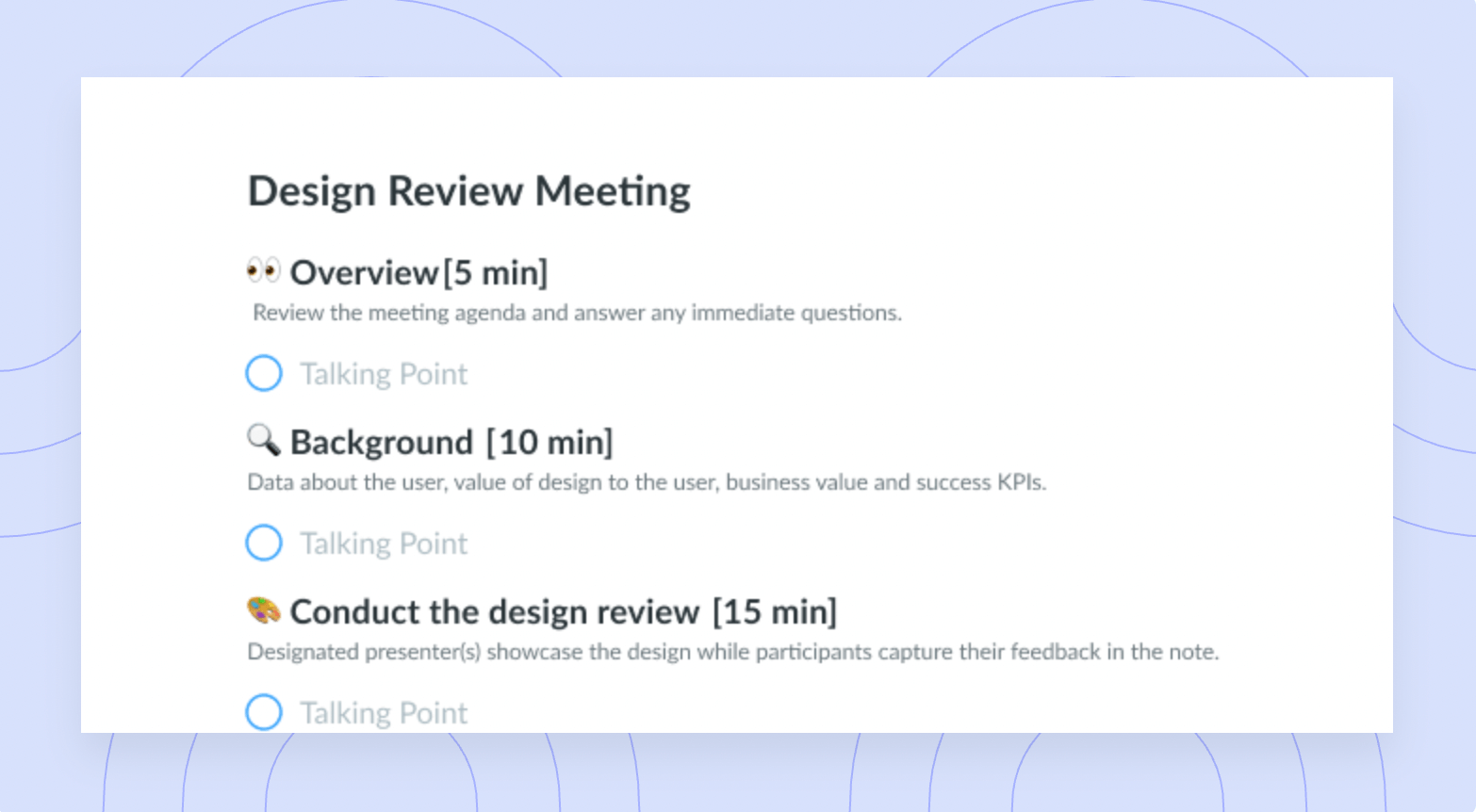
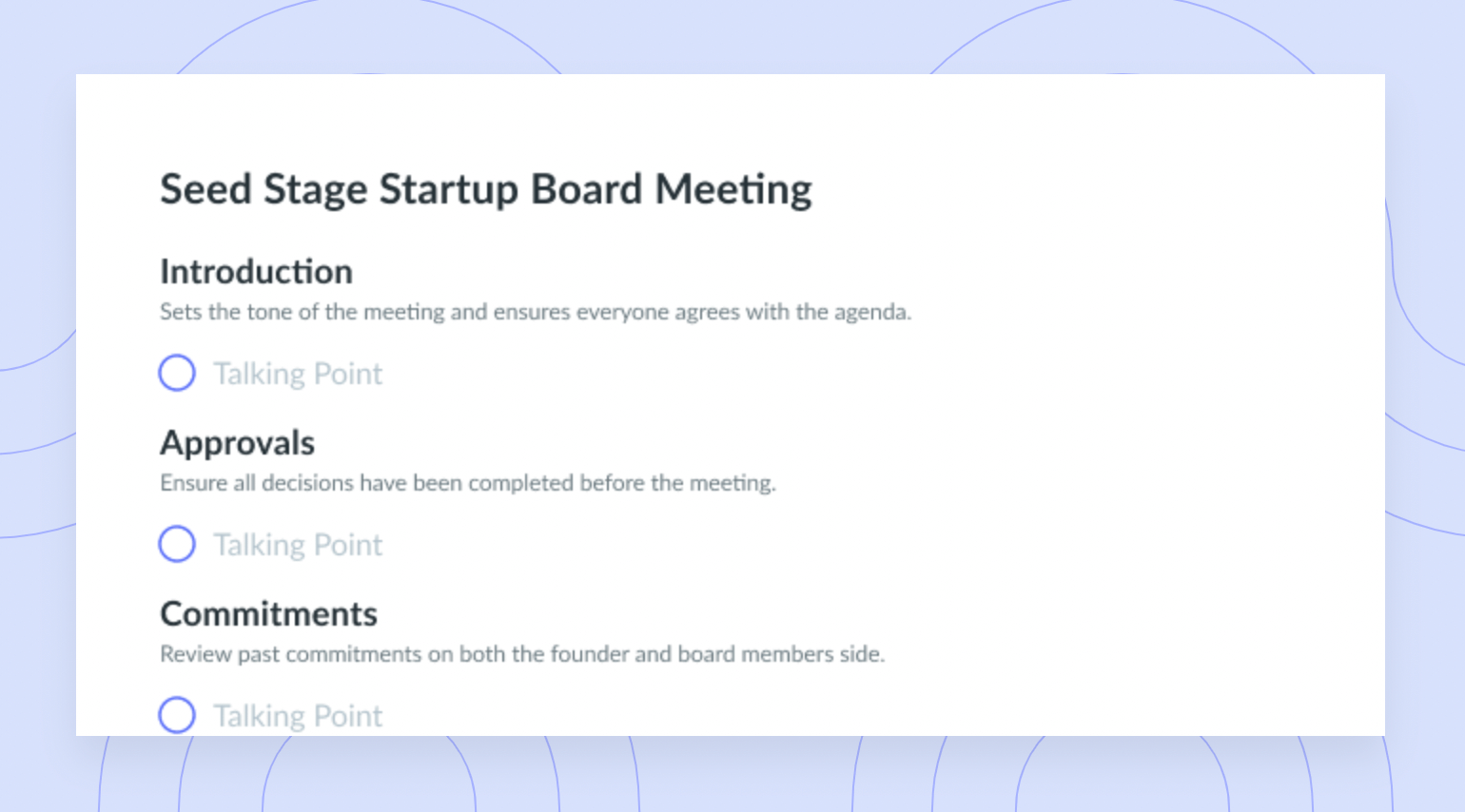
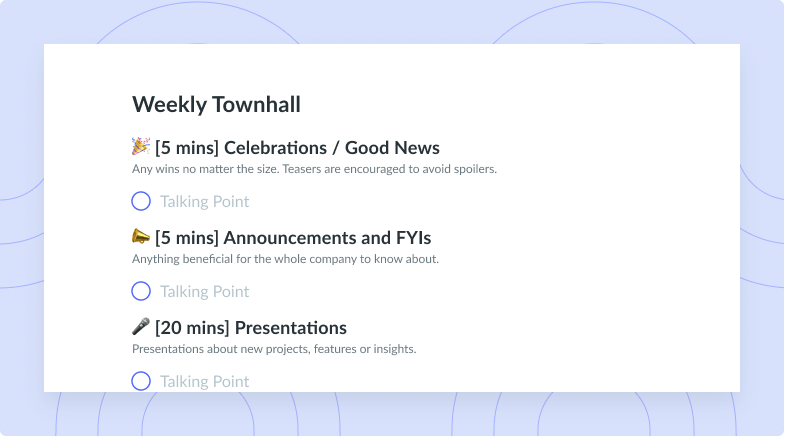
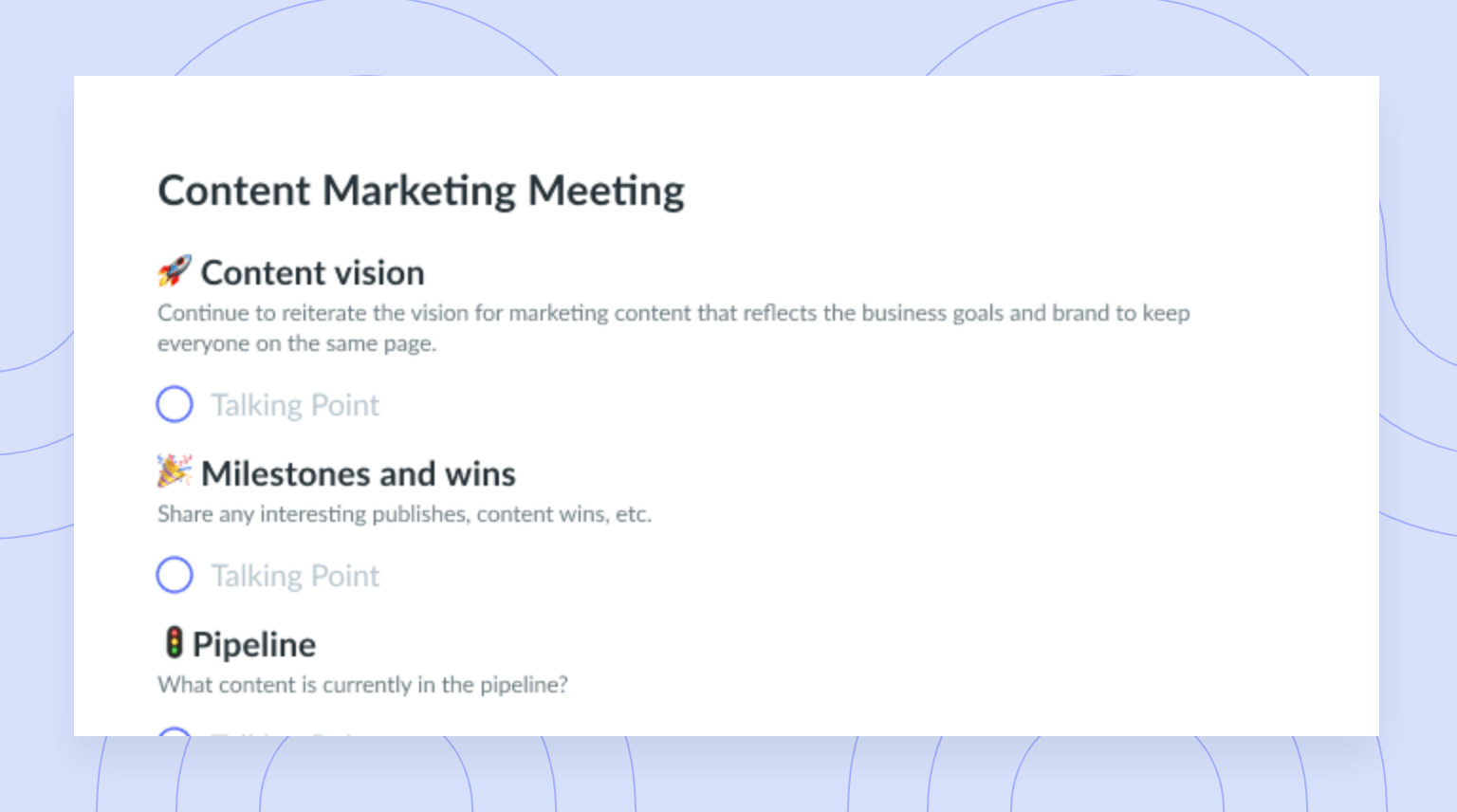
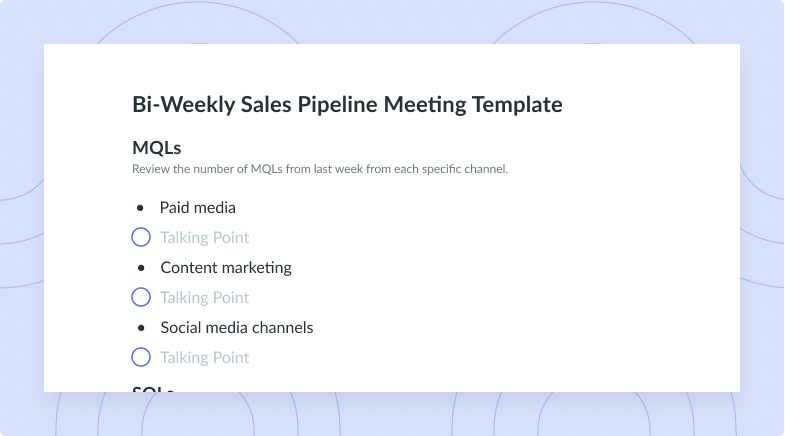
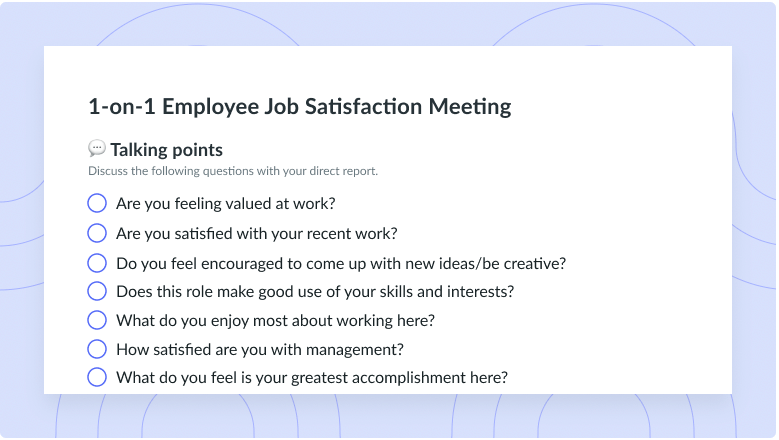
![What? So What? Now What? [Reflection Meeting] Template](https://fellow.app/wp-content/uploads/2021/08/What-So-What-Now-what-preview-v2.png)
